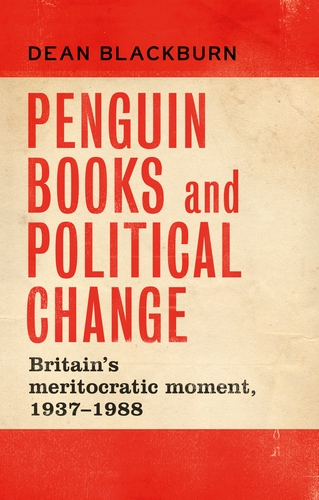
December 7, 2020, by ahzsa
New book on Penguin Books from Dr. Dean Blackburn
The author writes:
Penguin Books and Political Change traces the social and political thought of those intellectuals and policy-makers who helped to shape post-war. In doing so, it tells a story about the rise and fall of what we might call Britain’s ‘meritocratic moment’. From the 1930s, I argue, thinkers from across the political spectrum began to construct a new consensus in relation to some key political questions. They continued to disagree with each other about all manner of things, but they shared the belief that giving all individuals an equal opportunity to develop their skills and talents should be a priority. That was, in part, because they believed that a more meritocratic society would also be a more efficient one. Social mobility and economic growth, they assumed, would usher in a more harmonious future. But the promise of meritocracy was never realised. The arrival of comprehensive schooling may have removed some barriers to educational attainment. Yet it did little to remove the broader social inequalities that reinforced class distinctions. And by the early-1970s, as governments tried to come to terms with a series of economic crises, Penguin’s non-fiction books reflected a widespread disenchantment with the logic of meritocracy. Feminist authors drew attention to the discrimination that women faced as they attempted to enter the world of work; progressive educationalists railed against the idea that an IQ test could determine a child’s worth; and sociologists showed that the race to climb the social ladder hardened inequalities of wealth. Penguin’s pocket-sized paperbacks exposed the crisis of the meritocracy.
You can also see a brief video where Dr. Blackburn discusses his book:
No comments yet, fill out a comment to be the first

Leave a Reply